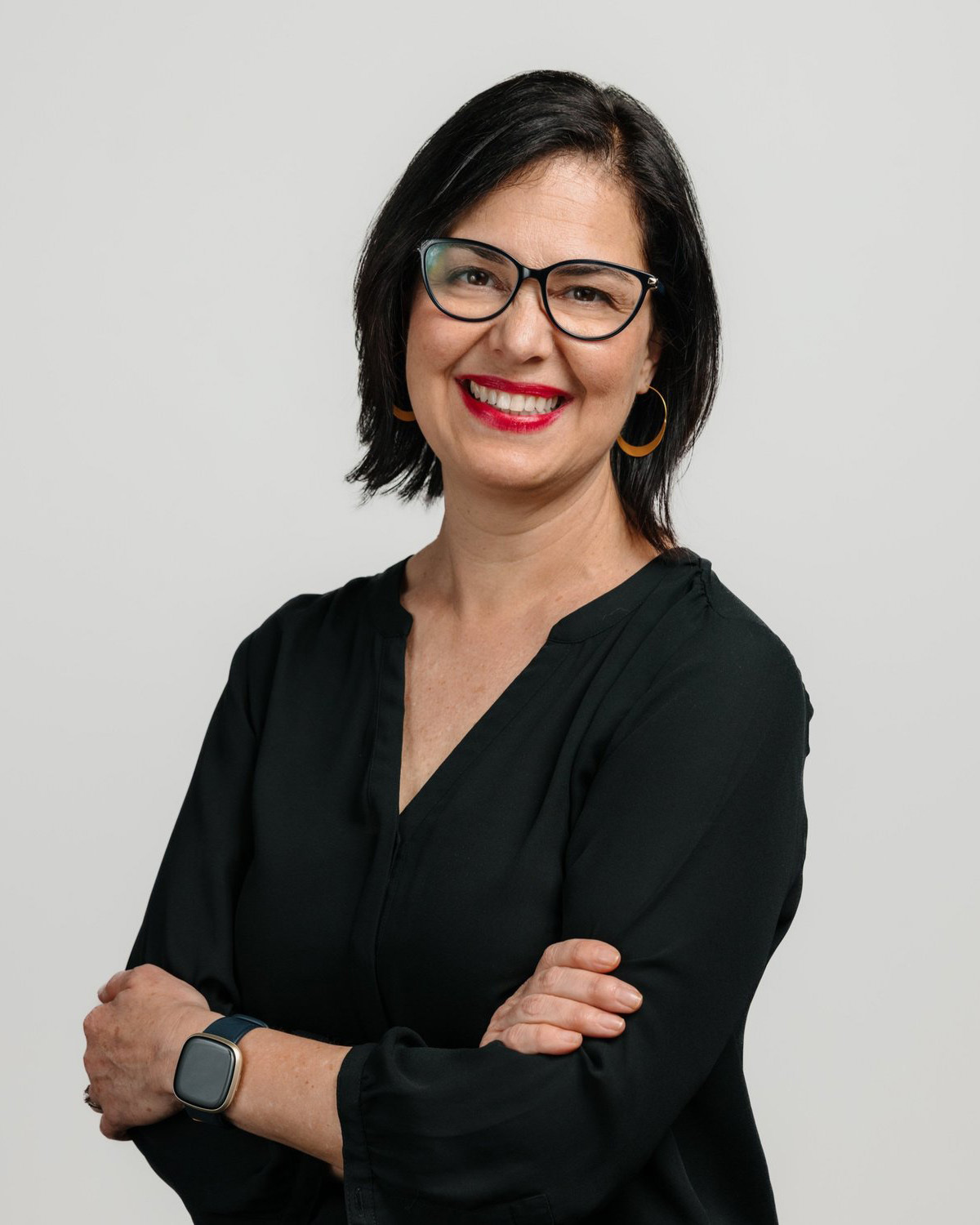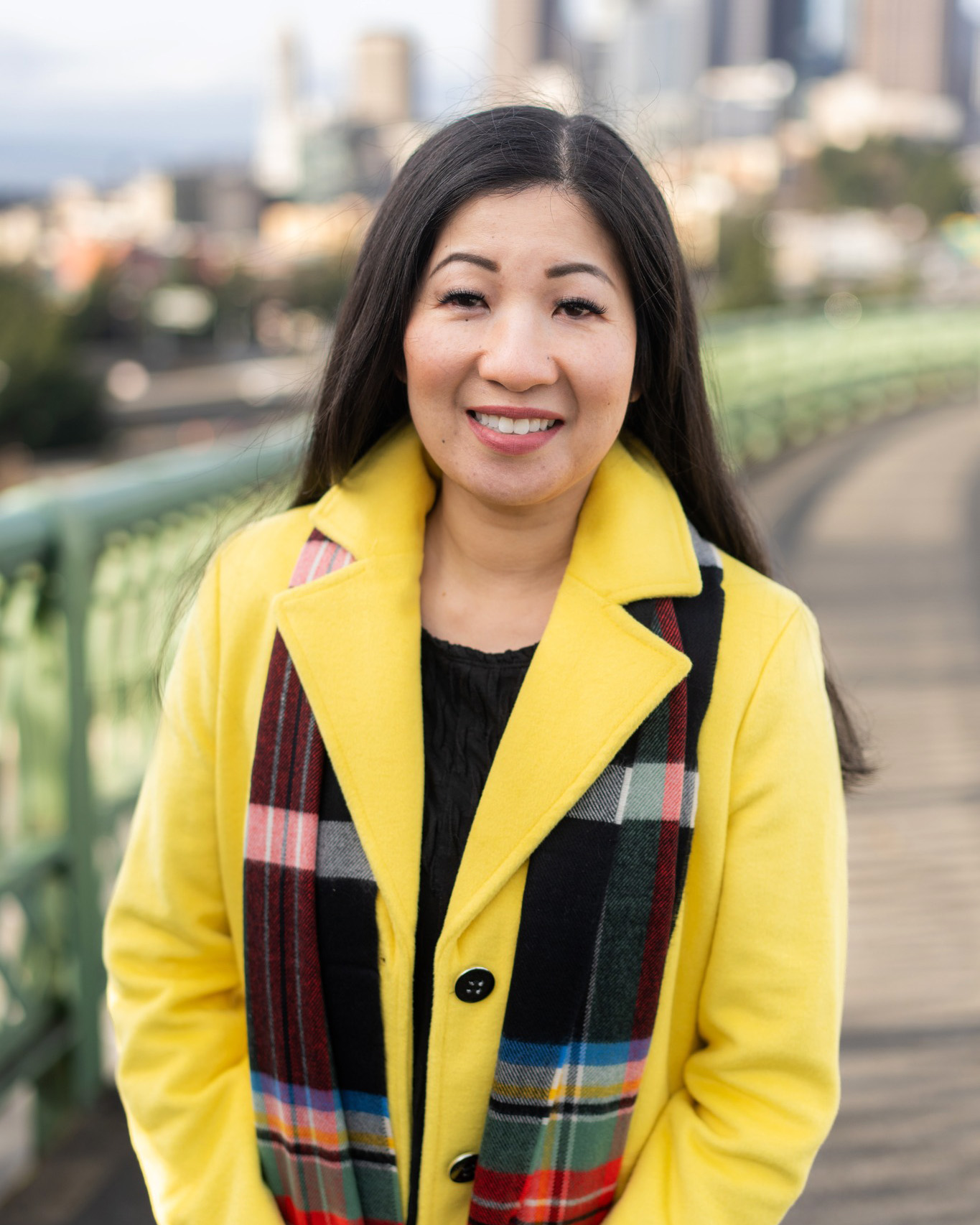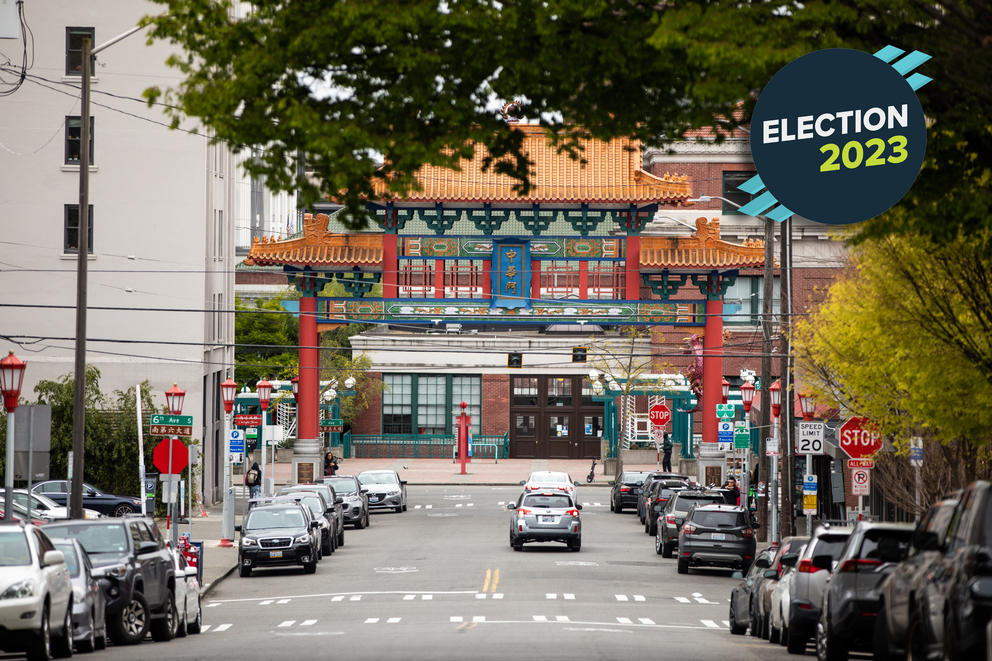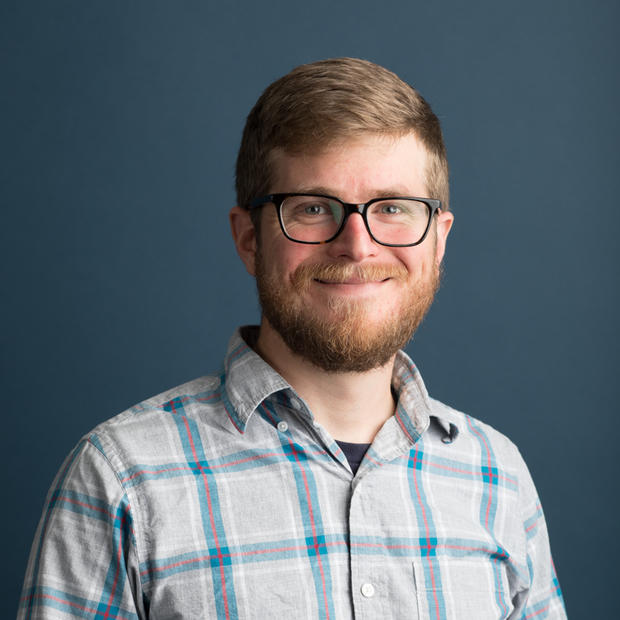District 2 Councilmember Tammy Morales is wrapping up her first four-year term in office. As one of the Council’s most progressive members, she has consistently voted to bolster social services and anti-displacement efforts and voted against the expansion of policing and the criminalization of poverty. As a city planner by trade, Morales has made street safety and walkable, amenity-rich neighborhoods centerpieces of her work at the city.
Morales is running for reelection to build on the work she started in her first term.
“I came into office because I was witnessing the displacement of communities of color here in South Seattle,” said Morales. “Not just residents, but small businesses as well. The work I’ve been doing for the last four years is really to try to stem that displacement and make sure that we are improving affordability and improving the ability of folks to stay rooted in their community.”
Tanya Woo is a community activist in the Chinatown-International District who helped launch CID Community Watch in the early days of the COVID-19 pandemic. The group conducts street safety patrols handing out water and supplies to unhoused residents, administering Narcan and keeping an eye on businesses. Woo and her family also co-own the historic Louisa Hotel, which was redeveloped into low- and middle-income affordable housing after a 2013 fire.
It was Woo’s experience in the CID during the pandemic that pushed her to run for office. The community saw a rise in homeless encampments, violent and property crime, racist anti-Asian sentiment and an entrenched drug and stolen-goods market at 12th and Jackson. All of that contributed to a feeling that the city wasn’t doing enough to help, nor listening to the community about how to address their concerns.
“I grew up in this district. I’m from Beacon Hill, I have a family business here in the CID, and I now live in Rainier Beach so I know this area,” said Woo. “We’re frustrated that we were not being heard. … I’m running to be a voice for my communities, such as the CID. We are District 2’s majority-minority district. How do we do more concerted outreach to all our people of color … and also help small businesses, residents and everyone?”
Crosscut sat down with both candidates to hear their ideas for addressing the city’s big issues like public safety, homelessness and housing affordability; how to pay for those needs; and much more.
The Issues
Affordable housing
Both D2 candidates say housing affordability is critical for the district. It makes sense: The city’s displacement risk heat map shows nearly all of the Rainier Valley lit up in high-risk red. D2 is home to many low-income communities of color, and immigrant communities and longtime residents are being pushed out of the city by rising housing costs.
Morales said step one for affordable housing is ensuring the Housing Levy gets renewed this fall. The property tax would provide nearly $1 billion to build, operate and preserve subsidized affordable housing.

If reelected, Morales will keep working on legislation she calls the Connected Communities Development Pilot. The idea builds on the city’s Equitable Development Zoning and seeks to increase community-led affordable-housing development; mandate that market-rate developers build some affordable housing when building in certain zones; and increase opportunities for low-income home ownership, among other goals.
Morales has also been a longtime supporter of the newly formed social housing developer, a governmental entity that seeks to build permanently affordable, mixed-income subsidized housing. Morales led the push to secure start-up funding for the voter-approved public development authority.
Woo said she wants to see the city build more housing of all types, while being mindful of the impacts of gentrification and displacement, especially in communities of color. To help facilitate that, she said she wants the city to speed the permitting process.
Woo also wants to revisit the city’s Mandatory Housing Affordability program, which requires market-rate developers to either build some subsidized affordable housing in their projects or pay a fee to the Office of Housing that helps fund affordable-housing construction elsewhere. Woo wants the city to require developers to build more affordable-housing units on site instead of paying the in-lieu fee.
Homelessness
Asked about addressing the homelessness crisis, Woo said that first and foremost she would want to analyze the existing response system.
“We need to see the results of our current programs, organizations and initiatives, especially from King County Regional Homelessness Authority, which the city puts millions of dollars into. I would like to see what their rate of success is,” said Woo.

Woo wants the city to invest in the construction of more tiny home villages, since they are often a popular shelter option for people living on the street. She also wants the city to expand support for outreach programs that connect unhoused residents with services, shelter and, ideally, housing.
Morales said that the only solution to homelessness is affordable housing, but acknowledged we’re a long way off from having enough. In the short term, she wants to expand the supply of tiny home villages, RV safe lots and other shelter types.
She also wants to expand the availability of hygiene services for unhoused residents, including public sinks, bathrooms and trash pick-up to help keep people healthy and keep streets clean while the city continues working to build more shelter and housing, given the significant gap between available shelter space and the number of people experiencing homelessness.
Public safety
Morales takes a broad view of public safety. It’s about the criminal legal system, but it’s also about providing a social safety net and making streets safer for people getting around without cars.
“I believe that a lot of our public safety issues could be addressed if we actually had a safety net in this country,” she told Crosscut. “That is part of why my focus has always been on how we keep people housed, how we increase food security, good-paying jobs, high-quality education and mentoring and tutoring for our young people.”
Morales said there’s a role for police to respond to violent crime with investigations. But she also supports expanding alternatives like mental health professionals who respond to people having a public crisis rather than armed police officers. Mayor Bruce Harrell is launching a “dual dispatch” pilot program in October that will send mental health professionals on calls along with officers, but Morales would like to see the city create a program where non-police responders don’t have an officer tagging along, as cities such as Eugene have done.
She also wants to expand community-based violent-interrupter programs such as Choose 180 and SE Safety Network. Morales wants to start a “Regional Office of Violence Prevention” in partnership with King County to support and scale up such community programs.
Morales does not support increasing the police budget to hire more sworn officers. She voted against the creation of a hiring bonus program for officers last fall. Morales was also part of the summer 2020 call to defund the police budget by 50% to reinvest money into social services (the Council ultimately did not significantly reduce SPD's budget). She has been outspoken in her calls for more police accountability in the wake of recent incidents including officer Daniel Auderer laughing about Jaahnavi Kandula being struck and killed by a police vehicle and officer Burton Hill yelling racial slurs at a Chinese-American neighbor.
Woo, by contrast, does want to see the number of SPD sworn officers return to pre-pandemic levels. The city’s hiring-bonus program and recruiting efforts have been slow going. Woo said she thinks efforts like the new Before the Badge program, in which officers meet with community members and organizations before they start patrolling the street, will help with recruiting because it will rebuild trust between officers and communities.
Woo also takes a “yes, and” approach to public safety. She wants to see the city expand outreach and diversion work such as the Let Everyone Advance with Dignity program that connects people engaged in low-level criminal offenses to case management and services rather than the criminal-legal system.
Woo also wants to see an expansion of efforts like the Third Avenue Project, which does outreach with drug users and sellers in the core of Downtown. She would like to see the city create a program like that at 12th and Jackson, which has a similarly entrenched drug problem.
The drug crisis
Morales does not support putting people with substance-use disorders in jail. She was one of three councilmembers who voted against the recent drug bill that aligned city code with a new state law making public drug use a gross misdemeanor and gave the City Attorney’s Office authority to prosecute. Instead, she wants to see an expansion of treatment options and funding to support addressing the drug crisis like a public health emergency.
Woo supported the city’s recent drug bill, and made public comment urging its passage during the City Council meeting. She thinks it strikes a good balance and does a sufficient job prioritizing treatment for people with substance-use disorders.
Small business support
In addition to residential displacement, Morales said she’s very concerned about small businesses being pushed out of the district. During the pandemic state of emergency, the City Council passed legislation implementing commercial rent control to stave off displacement, but that ended when the emergency declaration was lifted. Morales wants to pursue making commercial rent control a permanent fixture.
Woo also wants to help small businesses in the district. She said she’s troubled by the amount of burdensome red tape small business owners have to wade through to get permitted. In addition to figuring out ways to speed the permitting process, she wants the city to provide people — especially those who don’t speak English as a first language — with more help navigating the permitting process. One idea she has is for the city to set up neighborhood-based permit centers where people can go for help.
How to pay for everything
The multimillion-dollar question for any City Council candidate is how to pay for the expansion of programs and services they envision. Thanks to declining revenues, the city general fund is projected to have a $251 million deficit in 2025 that will grow to $498 million in 2026.
Woo said if elected, she would first want to thoroughly analyze the city budget to understand what’s working and what’s not to potentially find savings. It’s an idea that many City Council candidates have suggested, one that echoes the Seattle Metropolitan Chamber of Commerce’s talking points around the city budget and the potential for new tax revenue.
Once completed, Woo said she would be open to exploring some of the new tax ideas suggested by the city’s Revenue Stabilization Workgroup.
Morales countered: “It is kind of magical thinking that we can tinker around the edges in our departments and find $200 million worth of efficiencies.”
She said the only way to expand services is to generate new revenue. She supports increasing the size of the Jumpstart Payroll Expense tax and wants to explore a city-level capital gains tax, both ideas suggested by the revenue workgroup.
Fundraising and endorsements
As of this writing, Morales has raised over $142,000 in donations. Woo has raised over $160,000.
Morales has netted a laundry list of endorsements from progressive organizations, politicians and labor unions. They include the King County Democrats, the Working Families Party, Planned Parenthood, MLK Labor Council, UAW, Teamsters Local 28, SEIU 1199 and others. Congresswoman Pramila Jayapal, King County Councilmember Girmay Zahilay, Seattle Councilmember Teresa Mosqueda and State Sen. Rebecca Saldaña have all endorsed Morales as well.
Woo is endorsed by the Seattle Firefighters Union, the Metropolitan Democratic Club of Seattle, the Master Builders Association’s Affordable Housing Council, Seattle Hospitality for Progress, among others. She’s also received endorsements from former Gov. Gary Locke, State Sens. Sharon Tomiko-Santos and Bob Hasegawa, former Seattle City Attorney Mark Sidran and others.
A question of experience
Woo is a newcomer to city politics. She also has only recently started voting in local elections. During the primary, The Stranger reported that Woo has voted only eight times in Washington and started voting in local elections in 2021.
Woo told Crosscut that she “didn’t realize how important [local voting] was until just recently, during the pandemic, when all these issues have come into light.” She said she has since gotten much more involved and worked to help register other CID community members to vote.
“I’m a person of action,” said Woo. “I’m talking to community members, trying to work in partnership with everybody, trying to help rebuild that trust between our first responders, and just trying to get people’s issues out there. I want to listen and learn and help amplify voices.”
Morales said she wants to be a source of experience and leadership on the Council to still get things done since four Councilmembers are not seeking reelection this cycle.
“This is the part of the city that has historically been ignored and under-resourced,” said Morales. “My goal in representing this district is to elevate the issues that are harming families and workers and businesses. … We deserve nice things in the south end.”
Get the latest in election news
In the weeks leading up to each election (and occasionally during the legislative session), Crosscut's Election newsletter will provide you with everything you need to know about races, candidates and policy in WA state.



